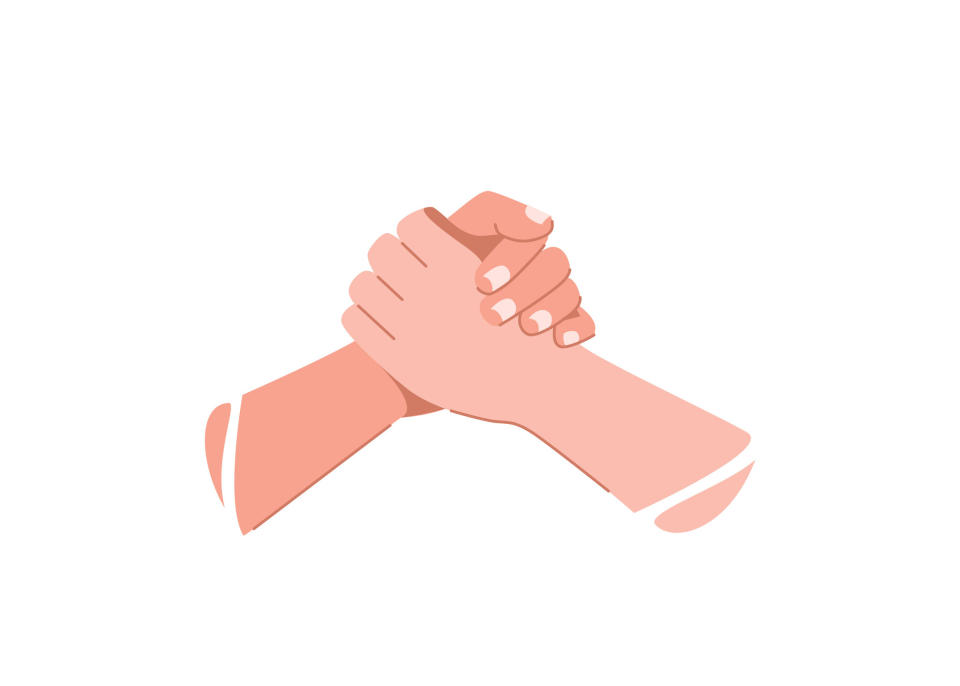Body Dysmorphia And Muscle Dysmorphia Are Common In Men, So What's It Like For You?
According to Mayo Clinic, body dysmorphic disorder (BDD) is defined as "a mental health disorder in which you can't stop thinking about one or more perceived defects or flaws in your appearance — a flaw that appears minor or can't be seen by others. But you may feel so embarrassed, ashamed, and anxious that you may avoid many social situations."
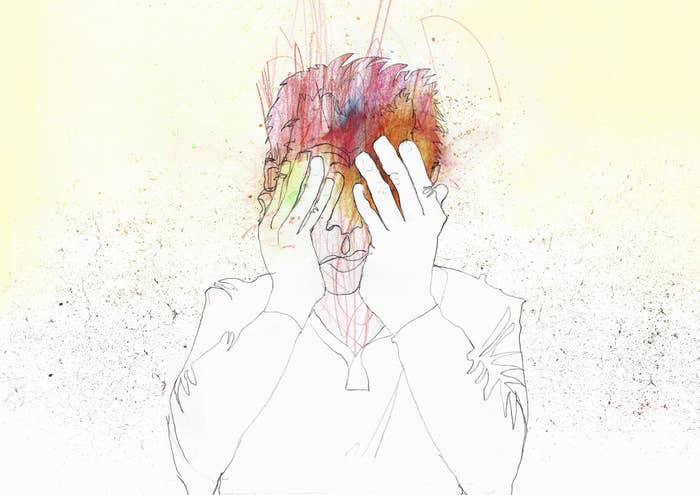
It is believed that this disorder affects between 5 million people to nearly 10 million people in the US alone, with that number potentially being higher due to people not disclosing their symptoms.
In terms of gender, research shows that BDD affects men and women nearly equally. But there is a subset of BDD which is called muscle dysmorphia (MD), and it mainly affects men. It is defined by the International OCD Foundation as "being preoccupied by worries that one’s body is 'too small' or 'not muscular enough' despite having a normal build, or in many cases, an objectively extremely 'buff' physique."
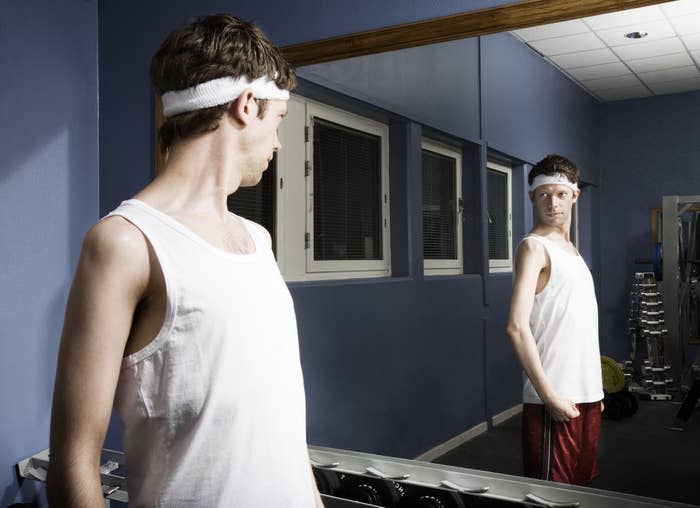
As a man who has BDD myself, these kinds of body image conversations are not often acknowledged enough. And when they are, many of the symptoms of BDD and MD are seen as a "normal" part of life (ex. obsessing over "gains"), when in fact there is a much larger problem brewing beneath the surface.
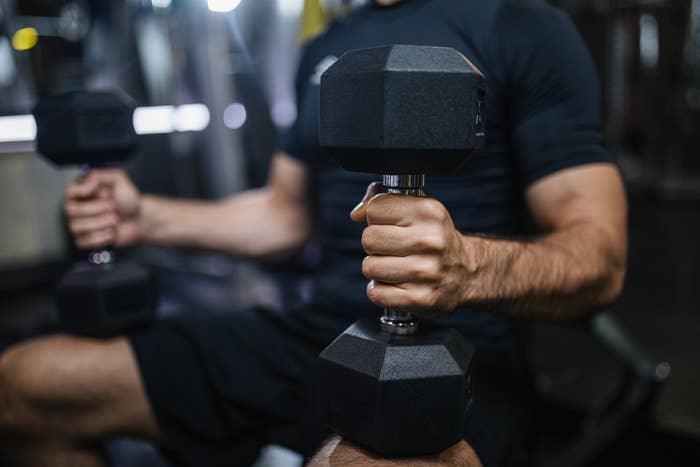
So, to the other men who have body dysmorphia, what is it like for you to live with this disorder?
Perhaps you've obsessed over your appearance prior to going out for the night and found yourself using strong words like "disgusting," "hideous," or "grotesque" to describe yourself, which only led to you avoiding the social situation altogether.
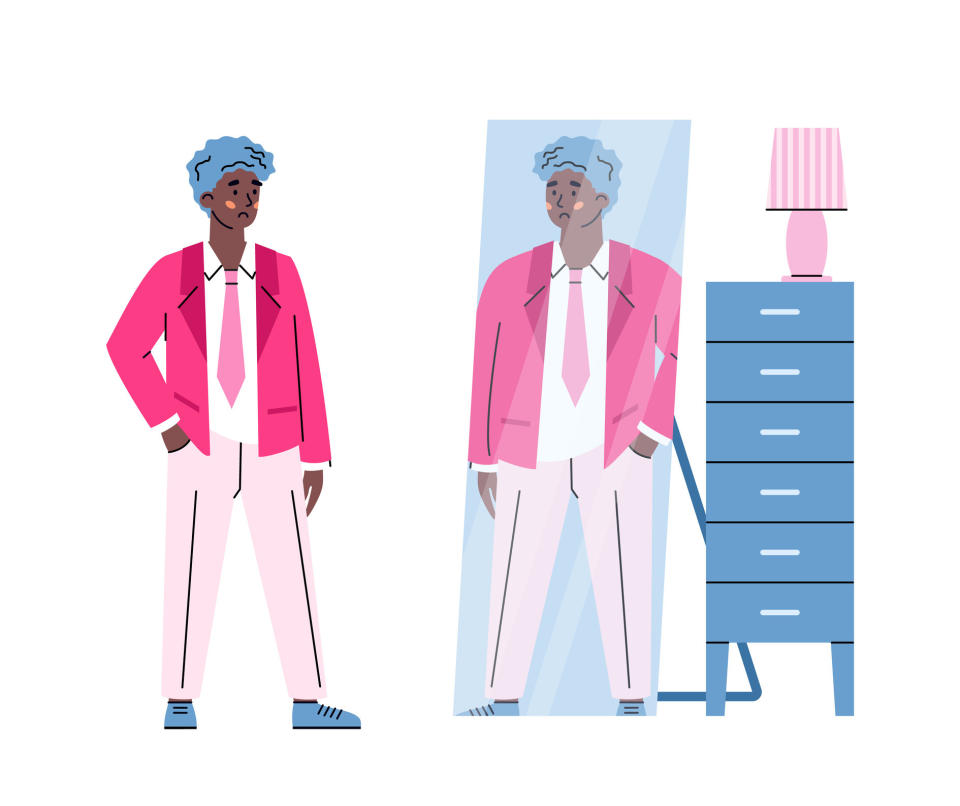
Or maybe you've been obsessively hitting the gym and haven't seen an increase in muscle mass that exactly matches the "perfect" male physique that society has set for you, so you're on an endless cycle of anabolic steroid use just to match this societal perception of perfection and masculinity.
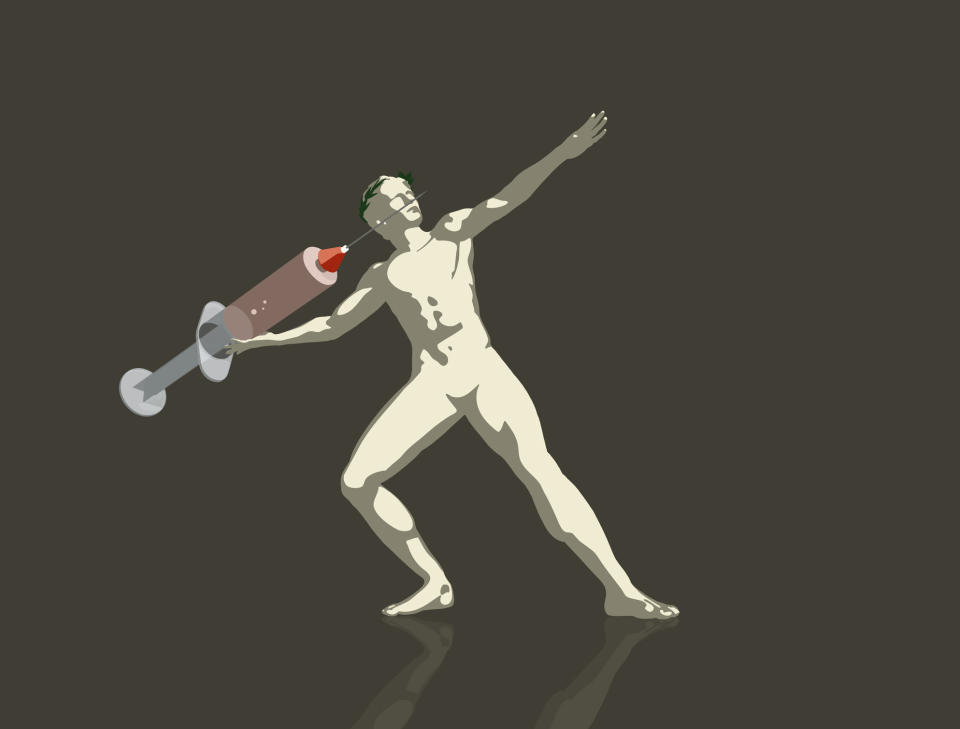
Or perhaps steroids aren't in the picture, but you do find yourself going to the gym for hours at a time on a daily basis, which cuts into your quality of life. You may have even found yourself continuing to train, despite having an injury.
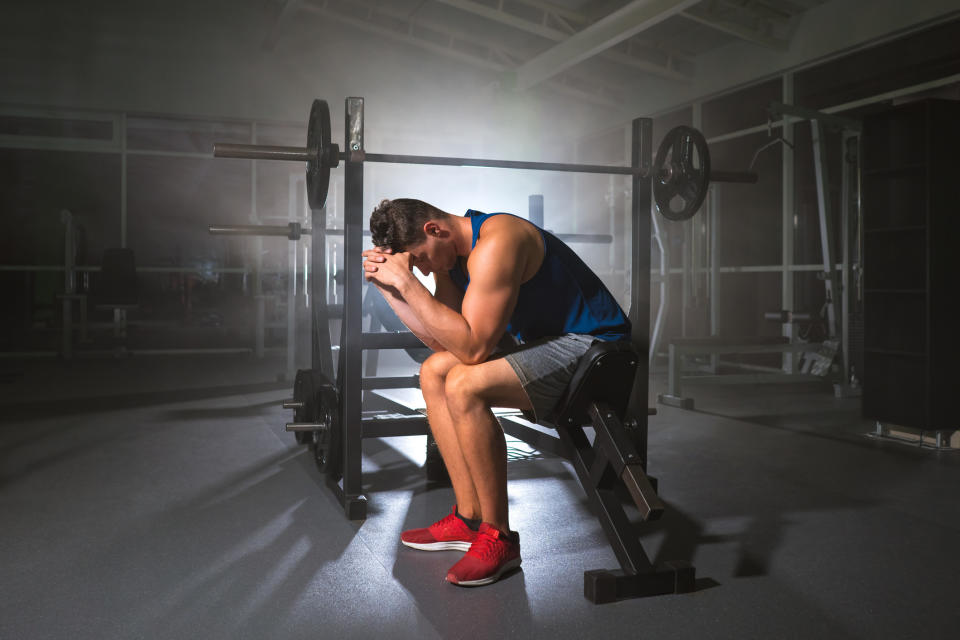
Maybe your hair is thinning and hats have become your safety net — and if you're not wearing one, you get severely emotionally distressed and can't think about anything else but the fact that your hair is exposed.
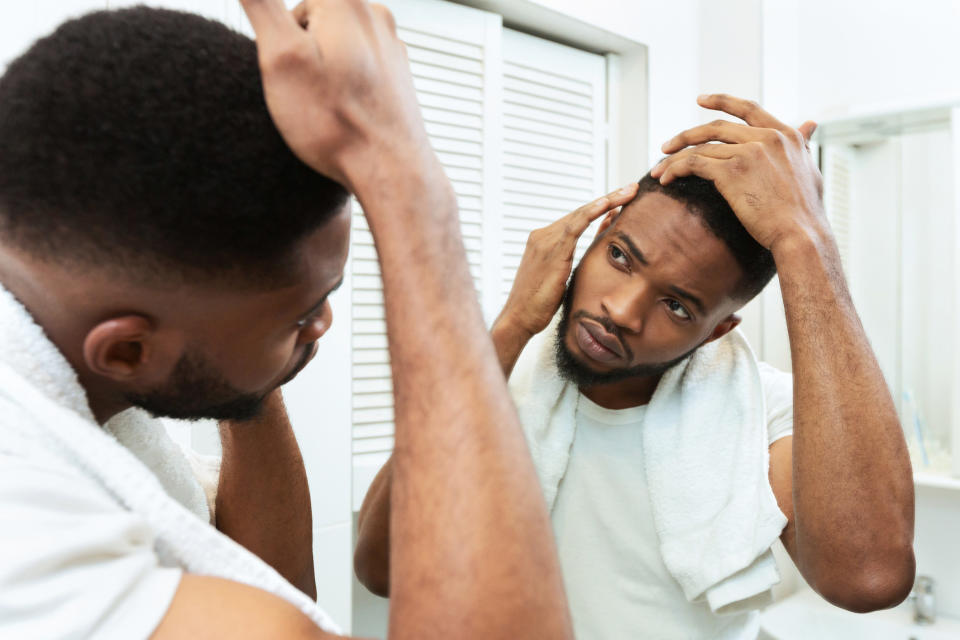
Perhaps you've found yourself having to avoid mirrors, because you know that looking into one will just cause an endless, obsessive cycle of continuing to critique some aspect of your appearance.
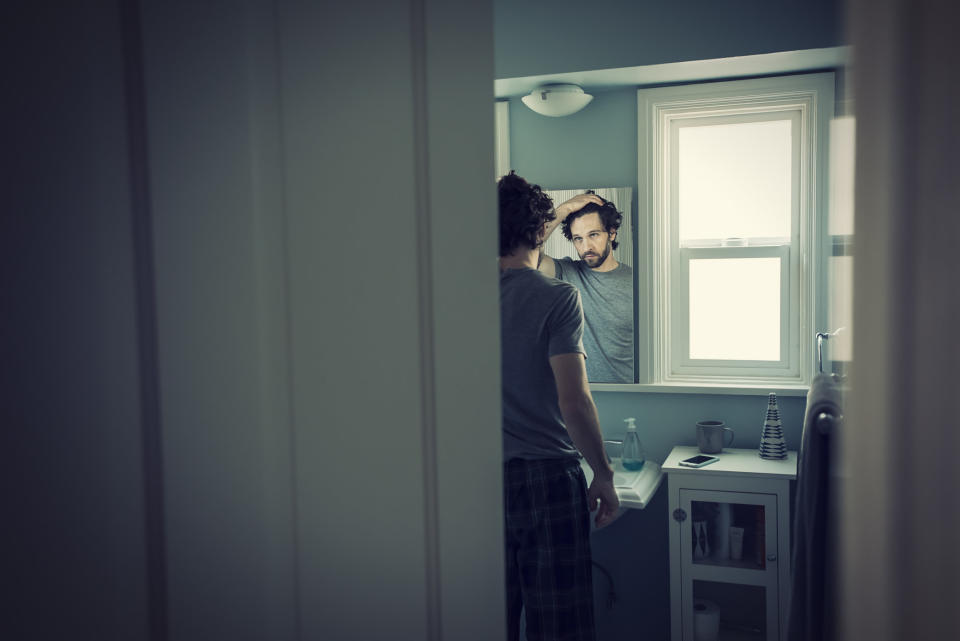
Or maybe you've found healthy ways of coping with your BDD that you'd like to share with others who are going through similar things.
